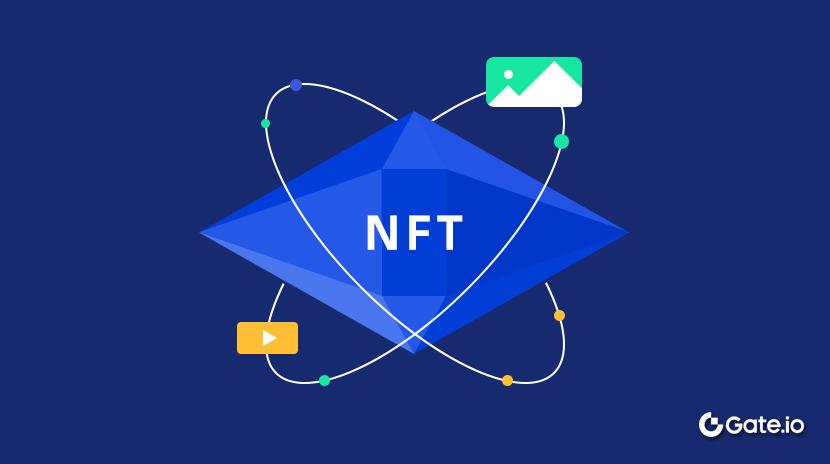sbt meaning

A non-transferable on-chain credential.
What Is a Soulbound Token (SBT)?
A Soulbound Token (SBT) is a non-transferable digital credential bound to a specific wallet address, designed to verify identity and qualifications on the blockchain.
Think of it as a blockchain-based “certificate” that records your completed courses, event participation, identity verifications, or reputation scores. Unlike tradable tokens, SBTs are not meant for buying or selling; they serve more like your on-chain résumé or achievement badge.
Why Should You Understand Soulbound Tokens?
SBTs directly impact your on-chain credibility and access to opportunities.
In open crypto networks, anyone can create new accounts, so platforms need mechanisms to distinguish real users from bots. Soulbound Tokens provide verifiable qualifications and histories, helping users secure whitelist spots, airdrop eligibility, better lending conditions, or DAO governance rights.
For individuals, SBTs allow skills and contributions to accumulate and remain portable across platforms. For projects, they reduce bot activity and Sybil attacks, lowering campaign costs and risks. For compliance, writing “verified” statuses on-chain in a non-transferable way enables reusable identity results across different applications and minimizes repeated verification.
How Do Soulbound Tokens Work?
They are minted as non-transferable credentials by smart contracts and bound to your wallet address.
Smart contracts are self-executing code deployed on the blockchain. When you meet certain criteria, a project or organization initiates “minting,” creating a token and recording relevant information on-chain, then binding it to your address.
Non-transferable means you cannot send this token to others, since it represents your personal qualification or experience. Typically, protocols use token standards with “locked/non-transferable” features (for example, the minimal SBT implementation approaches in the Ethereum community), ensuring even if you attempt to transfer the token, the transaction will fail.
Two additional mechanisms are important: first is “revocation/invalidation”—if a qualification expires or becomes invalid, the issuer can update or revoke the token’s status. Second is “privacy”—it’s best to store only essential reference data (like certificate numbers or hashes) on-chain while keeping sensitive information off-chain to avoid leaks.
Common Use Cases for Soulbound Tokens in Crypto
Soulbound Tokens are commonly used for identity verification, reputation scoring, event badges, governance qualifications, and educational certifications.
On exchanges, some platforms (such as Gate) issue non-transferable identity badges for completing KYC or participating in specific events. These badges are non-tradable and help prevent fraudulent activity and ensure proper eligibility for future events.
In DeFi lending, borrowers with a history of timely repayments proven by SBTs may enjoy better collateral rates or interest terms. In DAO governance, genuine community contributions (like successful proposals, code commits, or sustained activity) can be minted as SBTs and used to determine voting weight or candidate eligibility—reducing manipulation by newly created accounts.
In education and professional accreditation, institutions may issue diplomas or skill badges as non-transferable tokens—enabling employers or project teams to verify credentials at a glance and reducing fraud risk. For events and social contexts, SBTs can serve as participation badges at conferences or online hackathons; once linked to a wallet, they support future registrations and priority reviews.
How to Receive or Issue a Soulbound Token
Choose a trusted platform and follow the process to claim or have an institution issue the SBT to your wallet.
Step 1: Prepare and back up your wallet. Use a reliable wallet provider and securely store your seed phrase—losing access means losing your on-chain certificates.
Step 2: Select a platform or institution. After joining a course, event, or completing identity verification, check if a non-transferable credential is offered; exchanges or educational organizations usually provide claim links on their event pages.
Step 3: Connect your wallet and authorize minting. On the event or task page, connect your wallet and confirm the minting transaction. Minting writes the “certificate” to the blockchain and binds it to your address.
Step 4: Check visibility and privacy. Confirm that the credential appears in your wallet or personal profile; sensitive data should be kept off-chain with only essential references (numbers, hashes) on-chain.
Step 5: For issuers. Organizations looking to issue SBTs should use contract standards that support non-transferability, implement revocation and expiration logic, clearly state privacy/data usage terms, and first deploy on testnets to ensure all controls work as intended.
Recent Trends and Data on Soulbound Tokens
Adoption and standardization have accelerated over the past year, with identity use cases gaining traction.
On the standards front: The Ethereum community has proposed minimal implementations for non-transferable NFTs, enabling projects to enforce “non-transferable after minting” at the contract level. Through 2024 and into 2025, smart contract implementations for identity credentials are increasing in number, with ongoing discussions around revocation, expiration, and privacy-preserving proofs.
Case data (based on public dashboards; metrics may vary): By late 2024, account-bound credential projects issued by exchanges have reached tens of thousands to over a million holding addresses. For example, BSC-based identity credential tokens exceeded 500,000 holders by Q3 2024. By 2025, the number of identity SBT contract deployments and mints on Ethereum mainnet and Layer-2 networks continues to rise—commonly tracked dashboards show hundreds of relevant contracts.
Follow these trends: Monitor Dune Analytics dashboards on “soulbound/non-transferable” themes, contract counts on Ethereum and major Layer-2s, number of holders and mints; also pay attention to official updates from exchanges as well as education and governance projects for the latest issuance data.
How Are Soulbound Tokens Different from NFTs?
The main differences are transferability and intended use.
NFTs are typically tradable assets emphasizing scarcity and ownership—used for art, gaming items, collectibles. Soulbound Tokens are non-transferable credentials emphasizing qualification and reputation—used for identity verification, achievement tracking, or governance rights.
Technically, both utilize smart contracts and on-chain proofs. However, SBTs restrict transfers at the contract level and include revocation/expiration logic—functioning more like “non-transferable certificates.” NFTs are built for “trading and collecting,” while SBTs are for “verification and reputation”—defining their distinct roles within the ecosystem.
Related Terms
- Soulbound Token: A non-transferable non-fungible token used to record personal identity, achievements, or qualification credentials.
- Non-Fungible Token: A unique digital asset with distinct properties; each token is not interchangeable with others.
- Blockchain Identity: A decentralized identity system powered by blockchain technology allowing users to manage their own identity information.
- Smart Contract: Self-executing code that triggers transactions or operations automatically when predefined conditions are met.
- Decentralization: A network maintained and validated by multiple nodes without reliance on a central authority.
FAQ
Does holding a Soulbound Token put my wallet security at risk?
No. Since SBTs cannot be transferred or traded, they actually enhance wallet security. Even if your wallet is compromised, attackers cannot steal or sell your SBTs—they remain permanently bound to your address. This makes them ideal for storing proof of identity, degrees, or other important credentials without fear of unauthorized transfer or misuse.
If I want to change my wallet address, can I still use my previously received Soulbound Tokens?
It depends on the specific SBT protocol. In most cases, SBTs are bound to the original wallet address and cannot be freely migrated. However, some projects provide official transfer mechanisms allowing you to move SBTs through special processes. Always consult with project teams about transfer policies before changing wallets to avoid losing access to important credentials.
Can I trade Soulbound Tokens on Gate or other exchanges?
No. The core characteristic of SBTs is that they are non-transferable and non-tradable; thus they cannot be bought or sold on any exchange (including Gate). This is what fundamentally distinguishes SBTs from regular NFTs—they act more like permanent digital identities or achievement badges whose value lies in proving your status or contributions rather than commercial liquidity.
What are some real-world use cases for Soulbound Tokens?
SBTs are being explored across multiple sectors. Educational institutions issue them as diplomas to prove graduation; companies use them to record employee achievements; lending platforms use them instead of traditional credit scores for blockchain-based loans; DAO communities use them to identify active members and assign governance rights. In all these scenarios, SBTs’ non-transferability ensures authenticity of credentials.
I received a Soulbound Token but don’t know what it’s for—what should I do?
First check the issuing project’s official website or social media channels for information about its purpose and associated rights. Some SBTs grant community status, voting rights, or exclusive benefits—the details vary by project. Consider joining relevant communities or contacting project support to ensure you make full use of all entitlements linked to your credential.
Related Articles

Top 10 NFT Data Platforms Overview

7 Analysis Tools for Understanding NFTs
